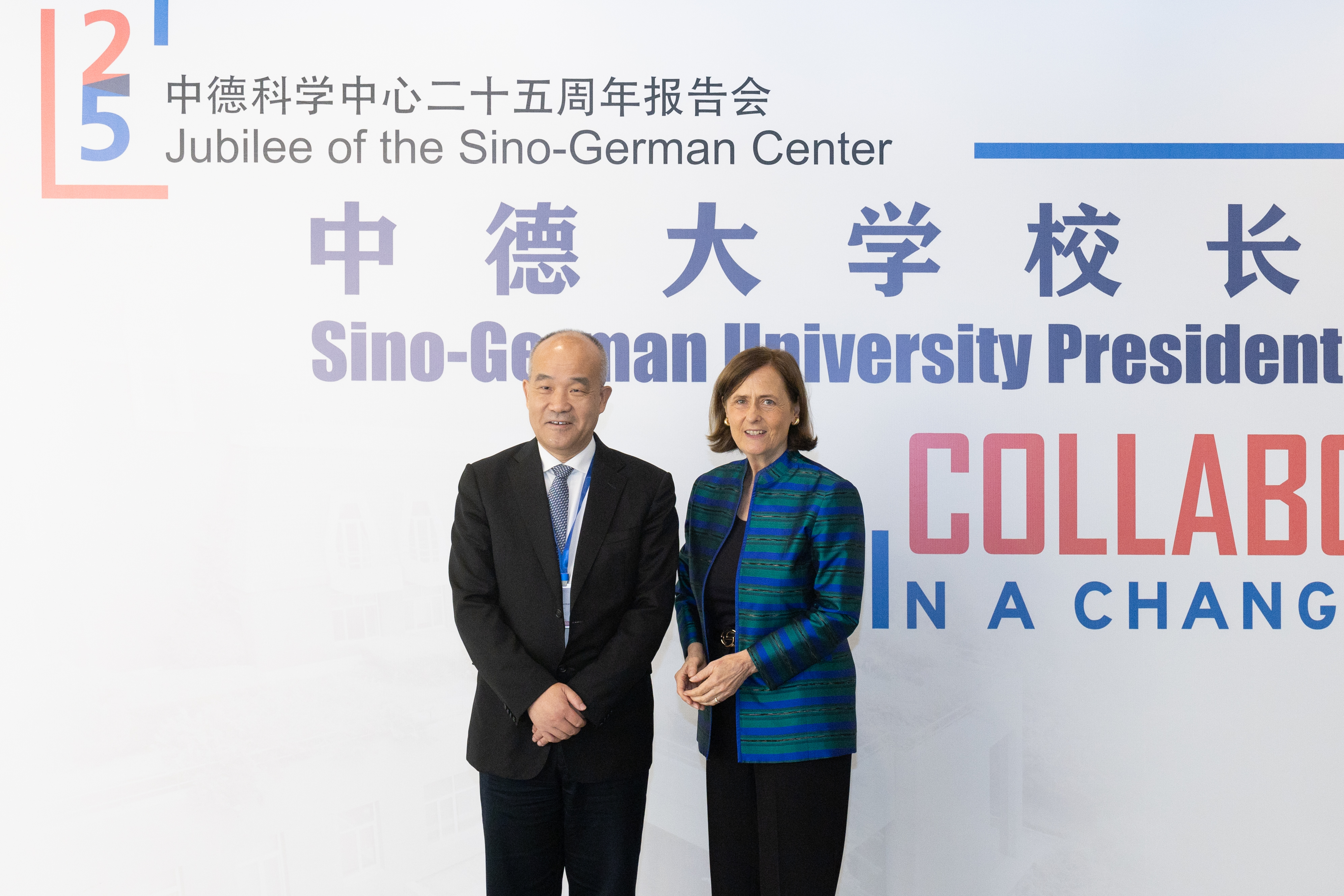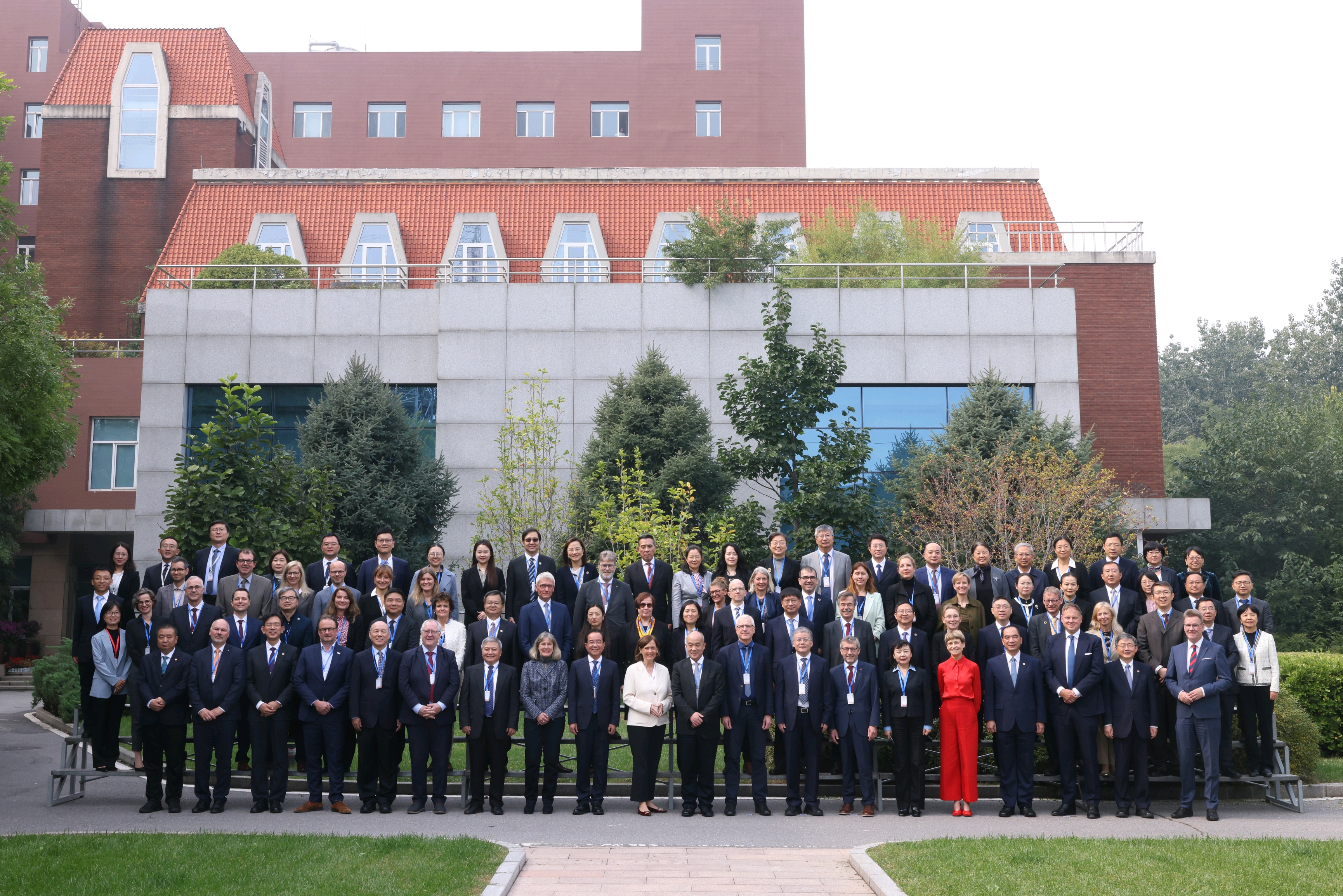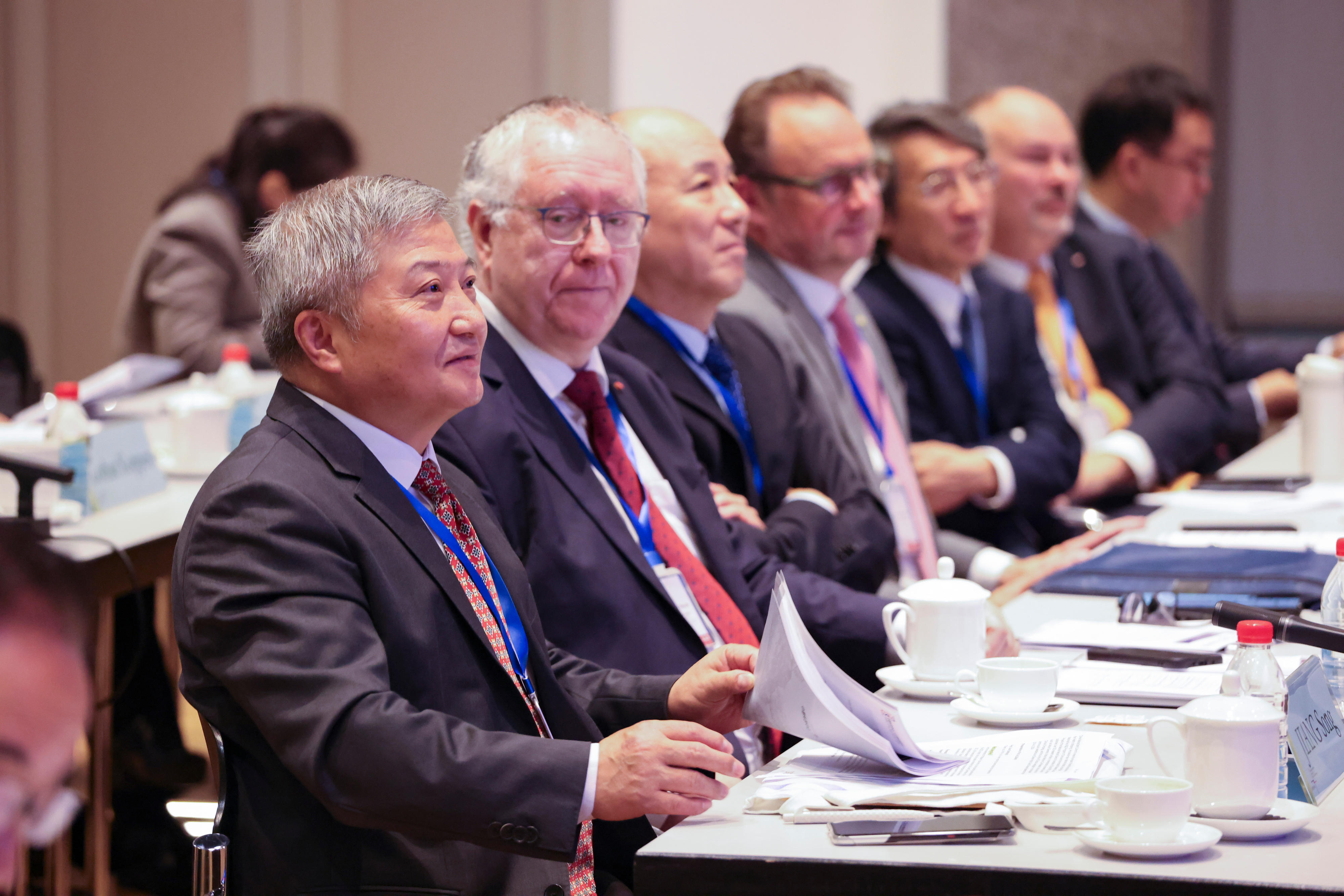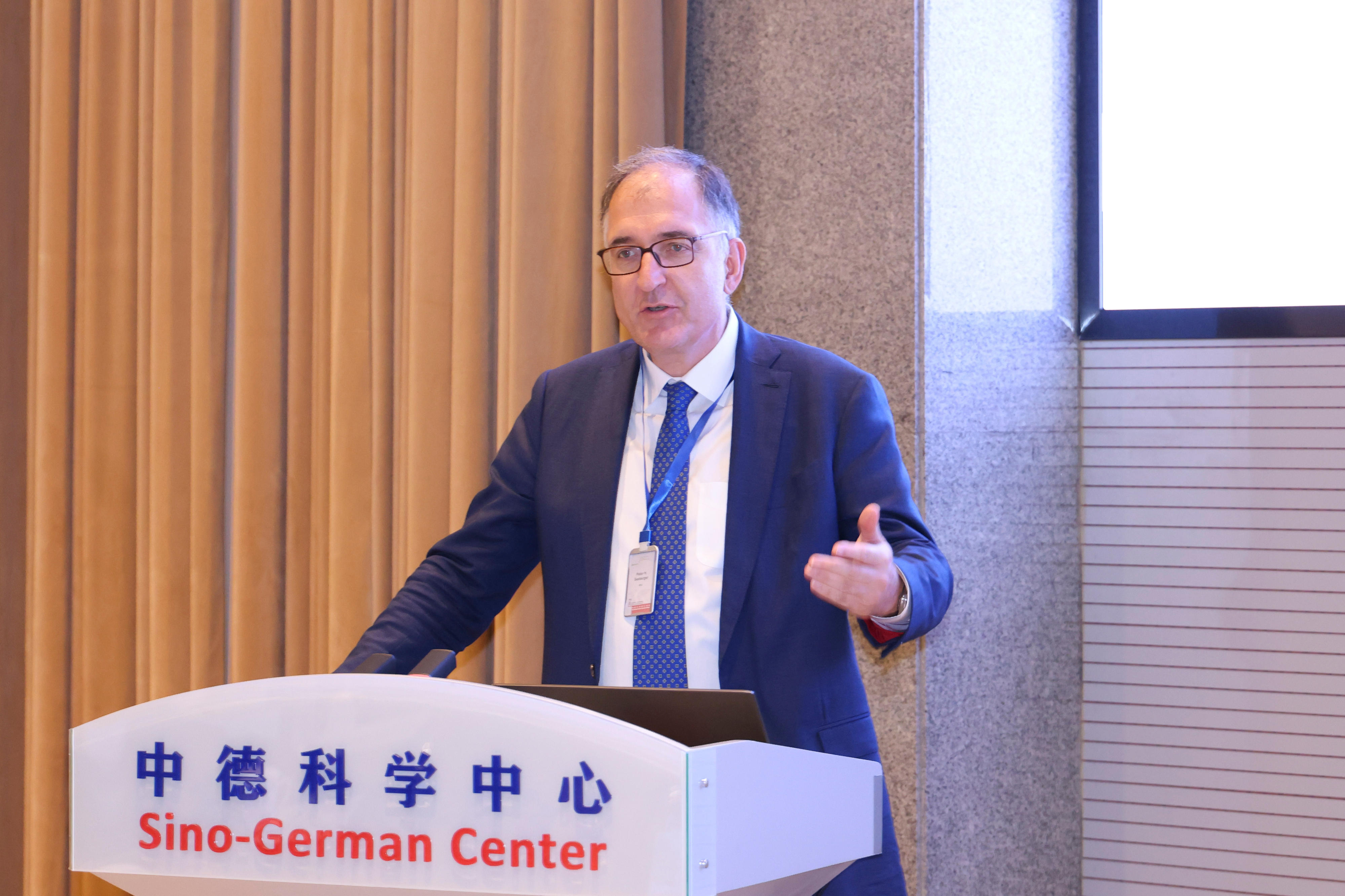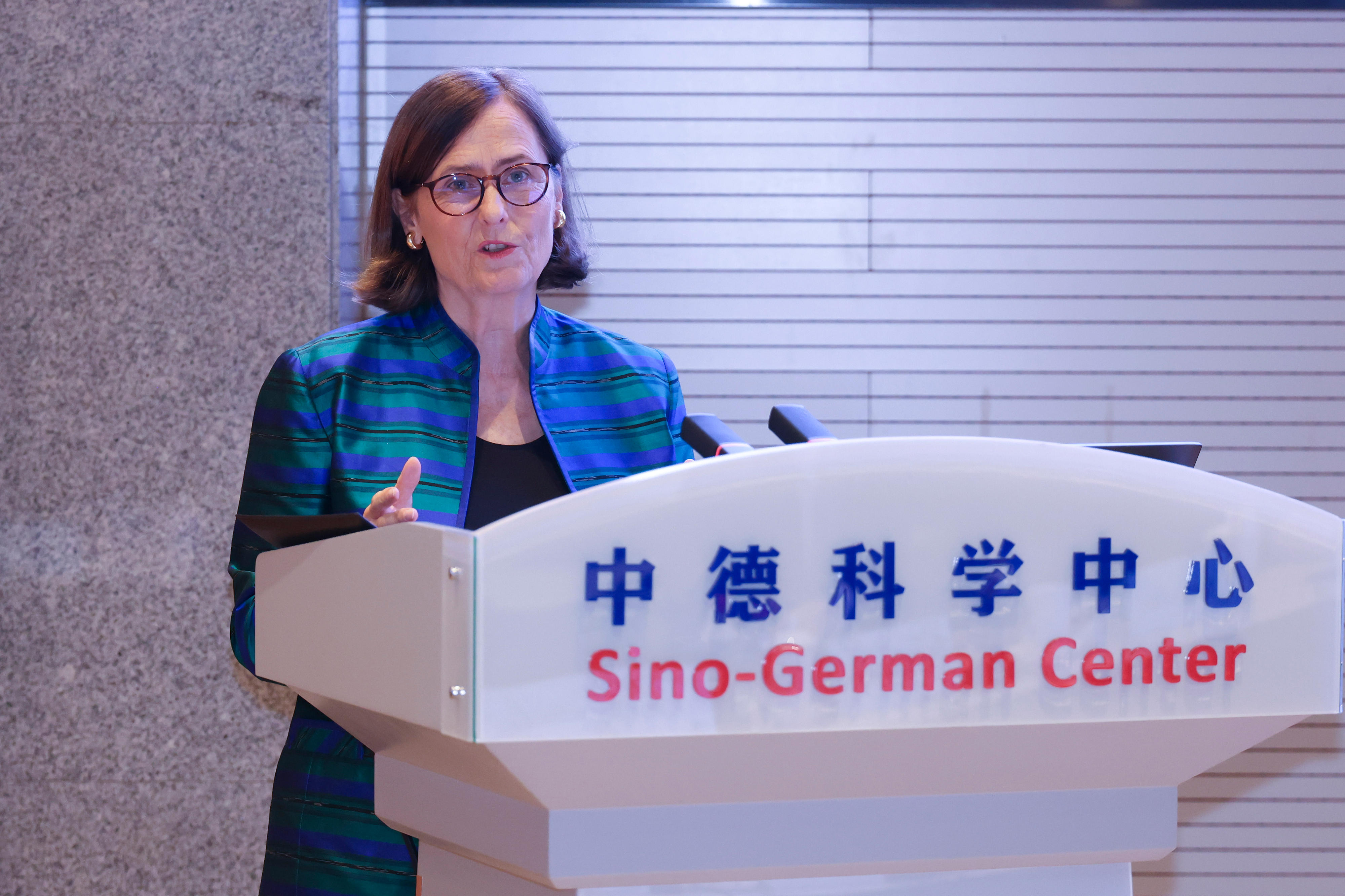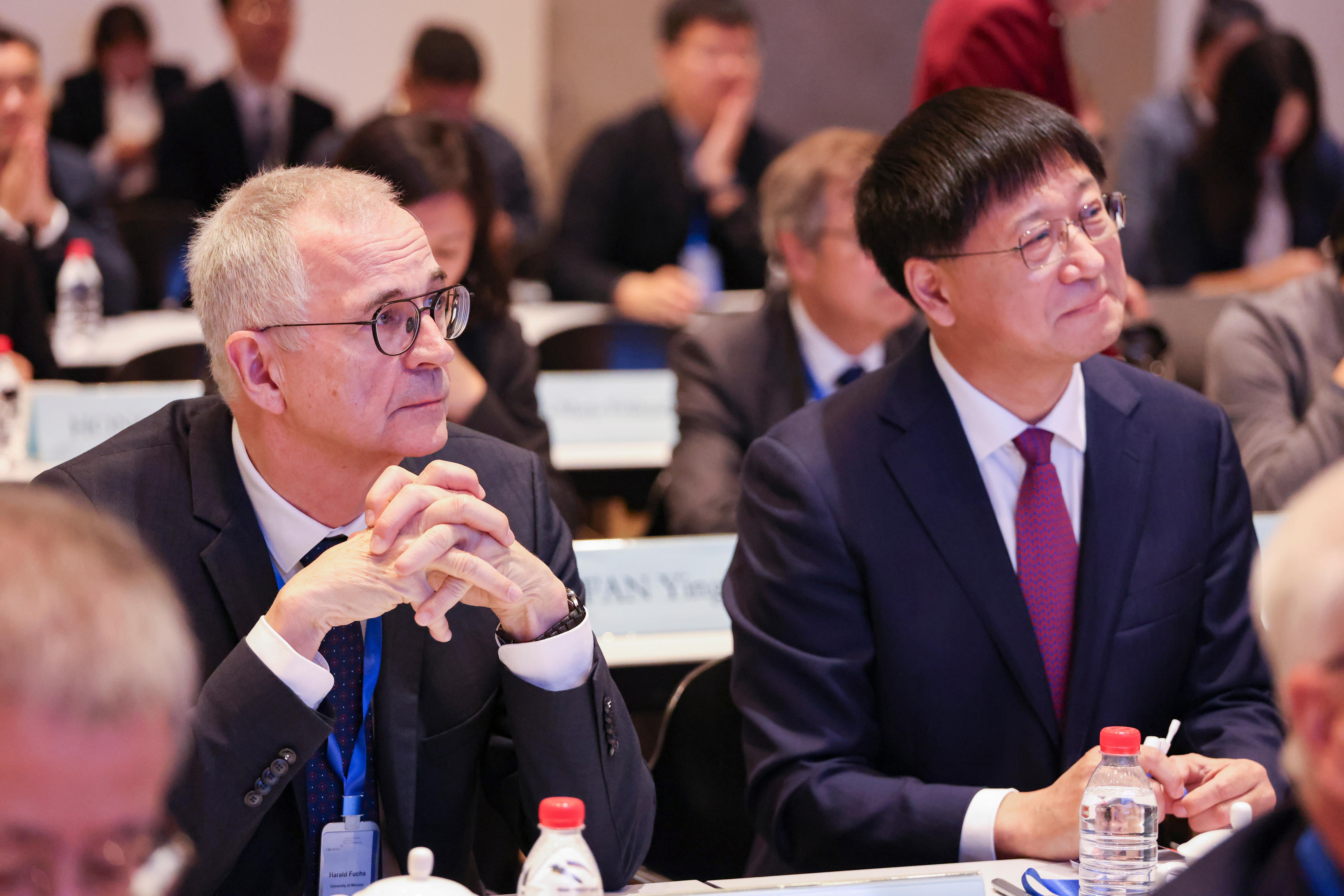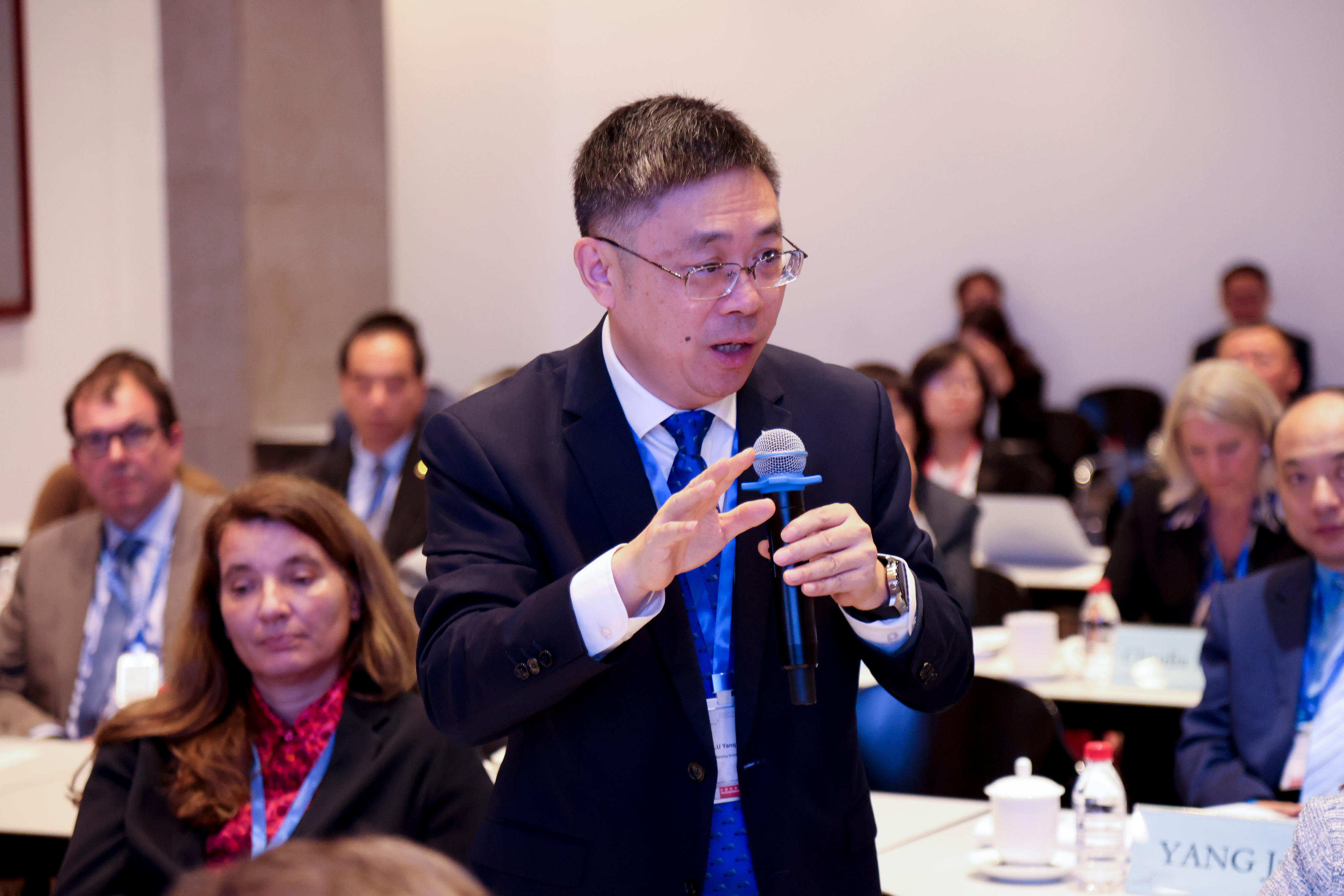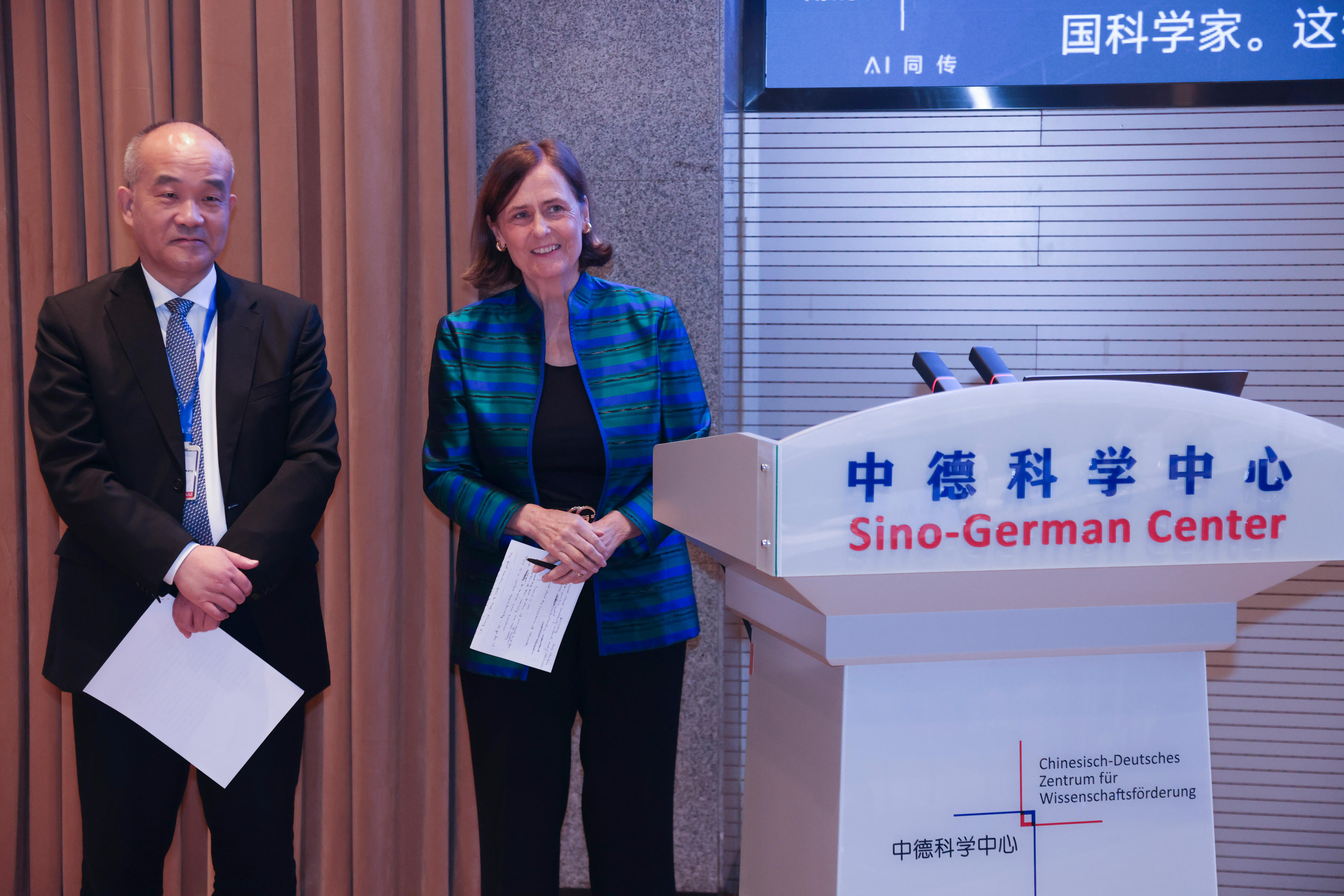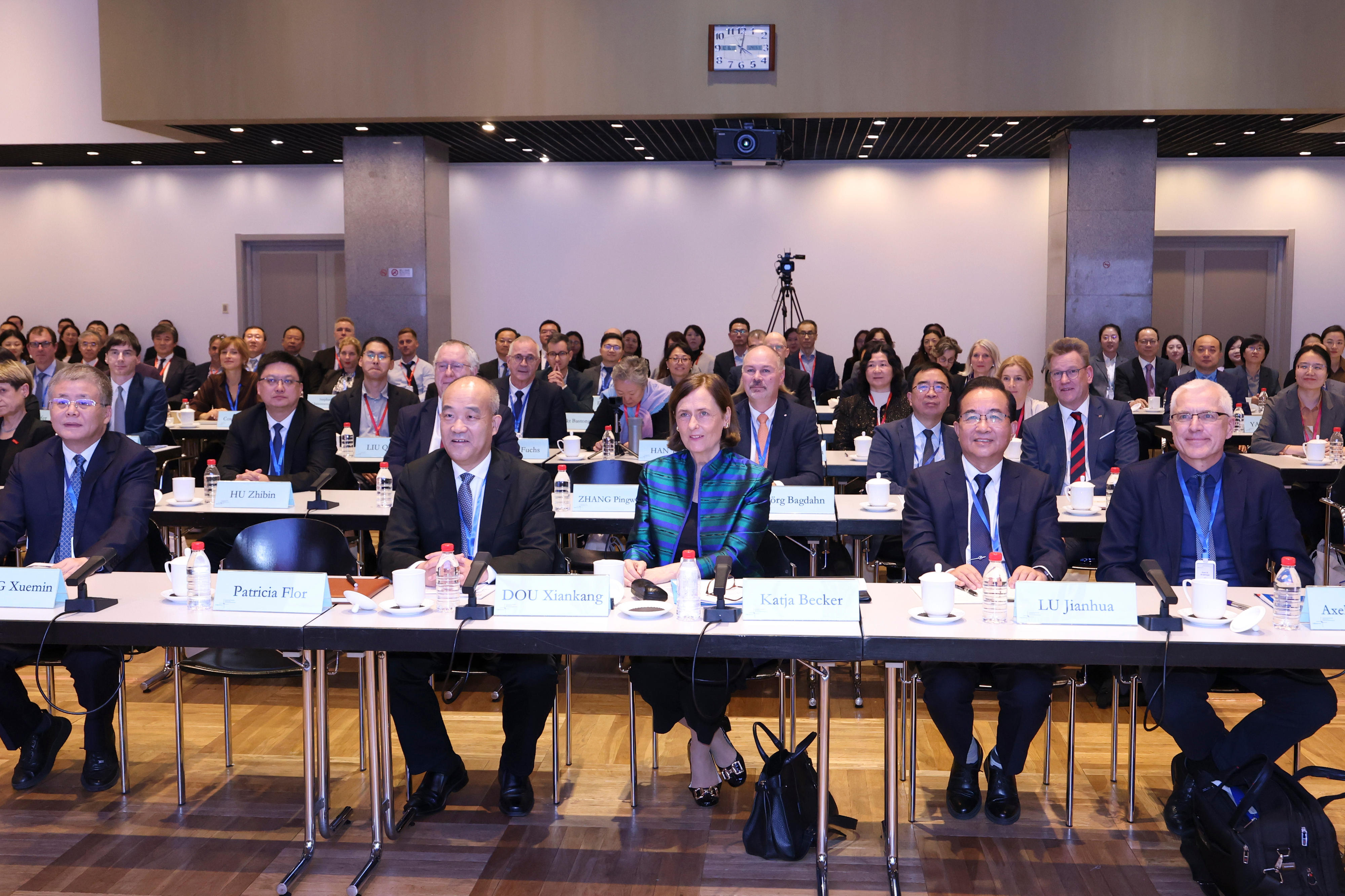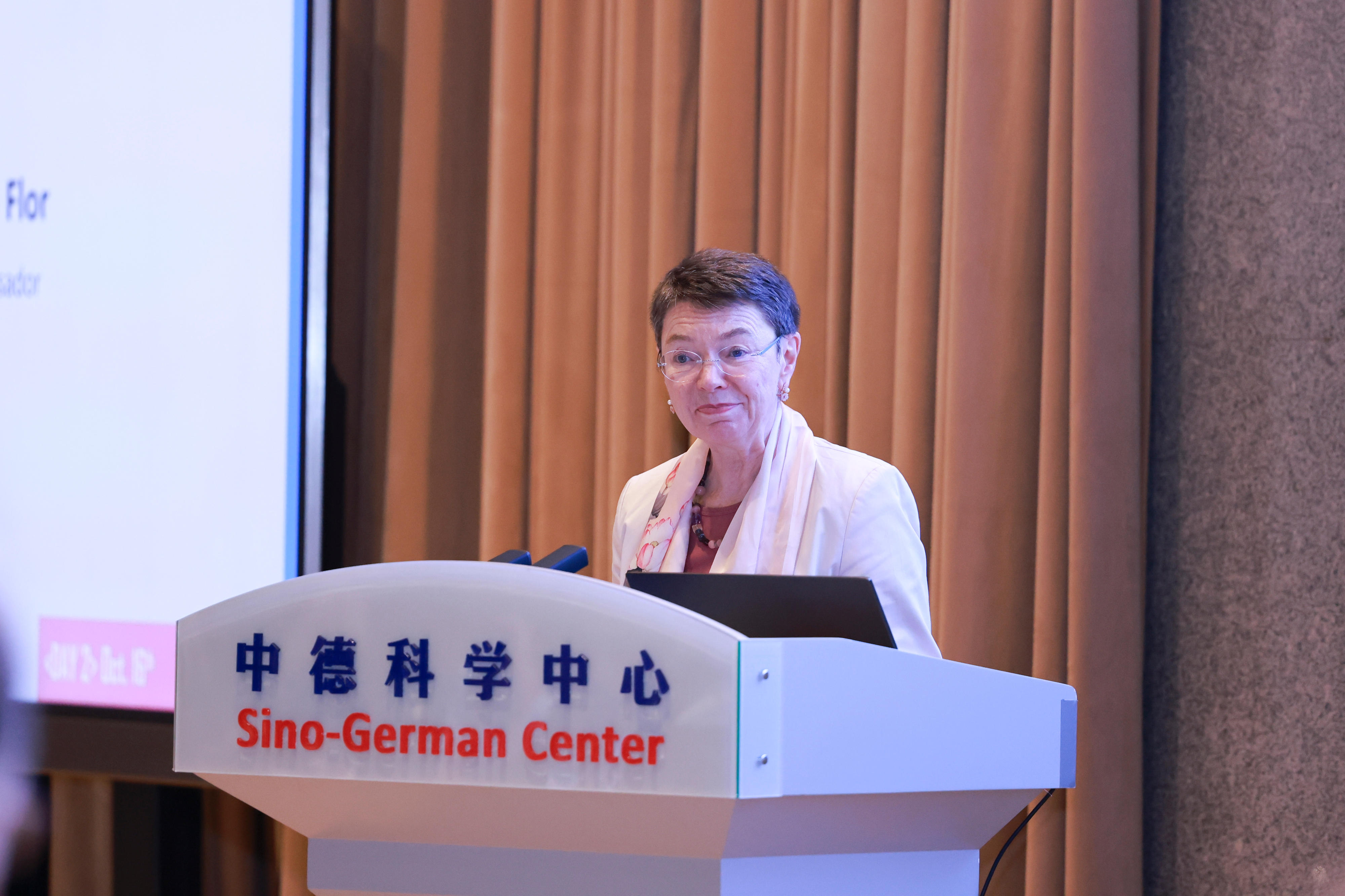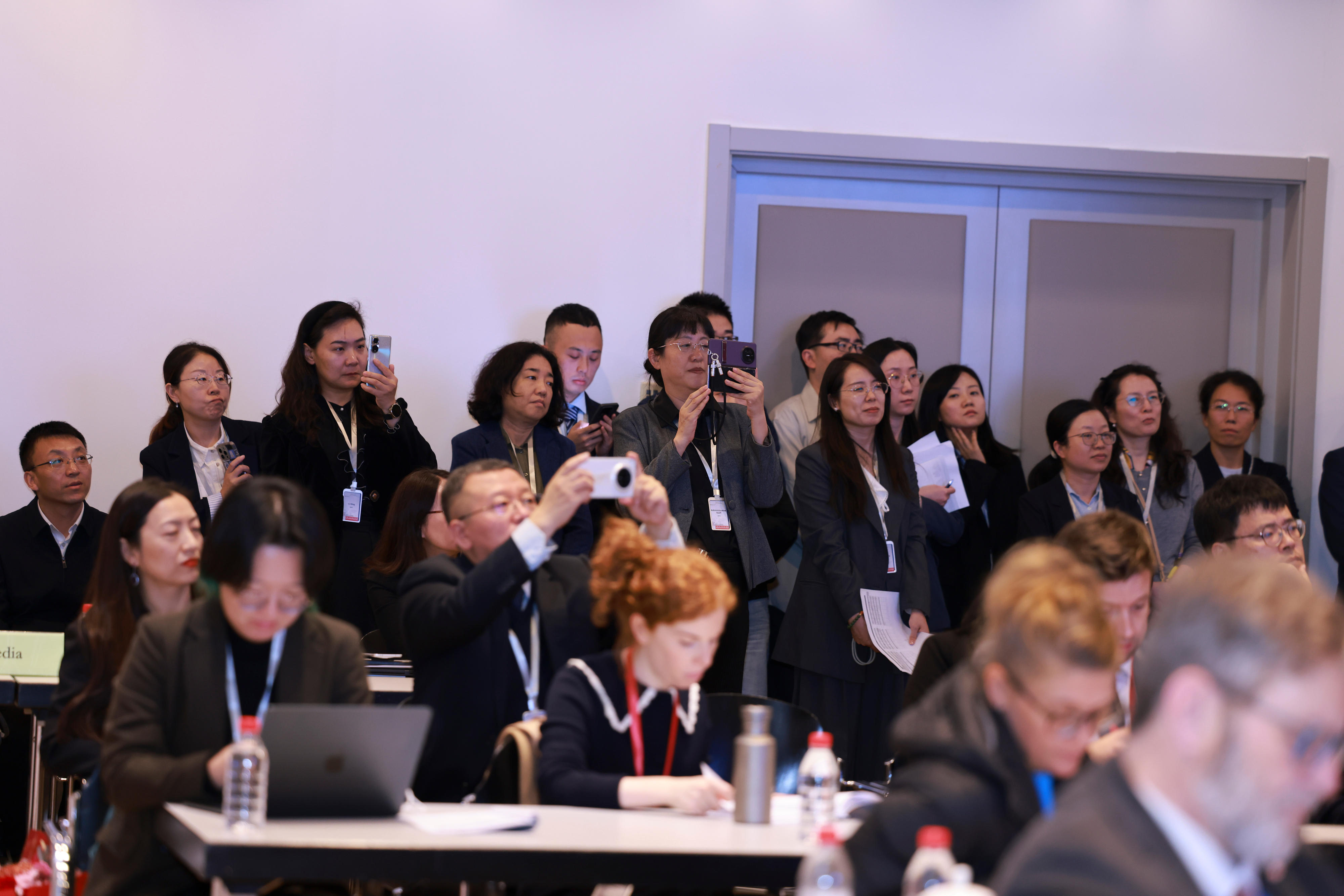25 Years of the Sino-German Center in Beijing: Anniversary in Geopolitically Challenging Times
Networking meeting of German and Chinese university presidents and discussion of future-oriented topics / Anniversary celebration involving guests from academia and politics in the two countries
NSFC President Professor Dr. Dou Xiankang and DFG President Professor Dr. Katja Becker greeting...
© NSFC
On 15 and 16 October 2025, the Deutsche Forschungsgemeinschaft (DFG, German Research Foundation) and its Chinese partner organisation, the National Natural Science Foundation of China (NSFC), celebrated the 25th anniversary of the opening of the Sino-German Center for Research Promotion (SGC) in Beijing. The celebrations began with a two-day networking meeting of German and Chinese university presidents – the first opportunity for in-person encounters following the pandemic years. The highlight was a formal anniversary ceremony attended by guests from academia and politics in the two countries. Those welcomed by DFG President Professor Dr. Katja Becker and NSFC President Professor Dr. Dou Xiankang included the German Ambassador to China, Dr. Patricia Flor, as well as representatives of China’s Ministry of Science and Technology (MOST) and Germany’s Federal Ministry of Research, Technology and Space Affairs (BMFTR).
“The Sino-German Center was established 25 years ago with great foresight, at a time when no comparable joint institutions existed in either Europe or China,” said DFG President Becker at the anniversary event in Beijing. “Since then, we have continuously intensified our cooperation, promoting academic mobility, funding numerous research projects and supporting researchers in early career phases. Close partnerships have developed around the SGC, mutual trust has grown and sustainable structures for a responsible Sino-German cooperation have taken shape. Overall, this is an important basis for fruitful cooperation in the future.”
NSFC President Dou added: “Looking ahead, NSFC and DFG will further strengthen strategic coordination and develop new models of cooperation to facilitate in-depth exchanges between scientists from both countries. In doing so, we want to continue to focus on young researchers and provide them with global vision, frontier knowledge and cross-cultural collaboration skills.”
The DFG President also emphasized on the sidelines of the anniversary events, that China remains a key research partner for Germany, even in geopolitically challenging times. There is also considerable interest among German scientists in cooperating with Chinese partners. “At the same time, however, there are also serious uncertainties regarding the specific form that the cooperation will take. It is therefore now particularly important to tackle challenges such as those in the area of data legislation and data protection together,” Becker said. “We’re committed to ensuring as much legal and procedural clarity as possible for researchers. This is the only way to continue to enable excellent collaborative projects that address the pressing questions of our time.”
For several years now, the DFG has provided its applicants with a clear framework for this purpose. Since 2018, applicants have been required to assess their research projects for security-related aspects and risk(interner Link) (“dual use”) and to include a statement on this aspect in their proposals. In 2023, the DFG also made recommendations on dealing with risks in international cooperatio(Download), enabling applicants to carry out a structured risk assessment for their projects. Such assessments make it possible to identify potential dependencies at an early stage and protect jointly generated research results. Building on this, in July 2025 was the first joint call for proposal(interner Link) launched, for the first time since 2021 – in a narrowly defined area of mathematics (“intelligent numerical mathematics”) where no sensitive data or dual-use aspects are to be expected.
During the anniversary celebrations, German and Chinese guests also looked back together on the founding period of the SGC, whose origins date back to several years before its official opening in 2000: negotiations on its establishment started as early as 1988. After the opening of the Center, initial cooperation formats were developed through joint workshops and researcher exchanges between the two countries. This was followed by a consolidation phase marked by a steady increase in collaborative projects: a record number of over 550 proposals were submitted under a joint DFG-NSFC call in 2017, for instance. The outbreak of the COVID-19 pandemic in 2019 and shortly afterwards, the new Chinese data legislation significantly disrupted what had previously been a steadily expanding cooperation.
At the networking meeting of university presidents, participants therefore discussed key topics relating to the future of Sino-German cooperation. These included the use of artificial intelligence in research and research funding as well as the integration of ecological sustainability considerations into the planning and implementation of research projects. Talks also focused on models for information and data exchange between Germany and China. A shared understanding in all these areas is to make Sino-German scientific relations resilient and future-oriented, even in a rapidly changing world.
Further Information
Information on the Joint Committe(interner Link) on the Handling of Security-Relevant Research.
Recommendations on handling the risks involved in international cooperatio(interner Link).
The Sino-German Call on “Intelligent Numerical Mathematic(interner Link)” (NSFC-DFG 2025 iNum).
Websit(externer Link) of the Sino-German Center for Research Promotion in Beijing.
| E-mail: | presse@dfg.de |
| Telephone: | +49 228 885-2109 |
| E-mail: | Ingrid.Kruessmann@dfg.de |
| Telephone: | +49 (228) 885-2786 |
